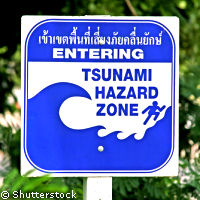EU project to take tsunami early warning system to next level
An EU-funded project has begun work on making the early warning system set up in the aftermath of the 2004 Asian tsunami disaster available to the entire Indian Ocean region. Building on the work of the German Indonesian Tsunami Early Warning System (GITEWS) project, the Distant Early Warning System (DEWS) is developing an information technology platform to prevent a repeat of the 2004 tragedy. 'As excellent progress has been achieved within the GITEWS project so far, it is now high time to give more countries in the Indian Ocean region like Thailand or Sri Lanka timely access to early warning information, as well as real-time earthquake and ocean data,' says one of the eleven partners in the project, Dr Joachim Wächter from the Geophysical Research Centre (GFZ) in Potsdam, Germany. Funded by the EU's Sixth Framework Programme (FP6), the DEWS project will aim to strengthen early warning capacities in the region by building an open and interoperable tsunami early warning system for the Indian Ocean. The system to detect tsunamis will be based on an open sensor platform and integrated sensor systems for earthquake (seismic), sea level (tide gauge, buoys) and ground displacement (GPS land stations) monitoring. These sensor systems will be one of the most important innovations in the project as they will be responsible for sending reliable data from the seafloor to the warning centre. Based on these advances, the project hopes to improve the quality and flow of its warning messages to the public, the relevant authorities and emergency management forces, both at national and at international level. Finally, the project will also aim to transfer its DEWS system to other tsunami prone areas of the world, and this task will be undertaken by supplementary action in the Mediterranean basin. The four year project is being funded by the EU to the tune of €6.5 million.



